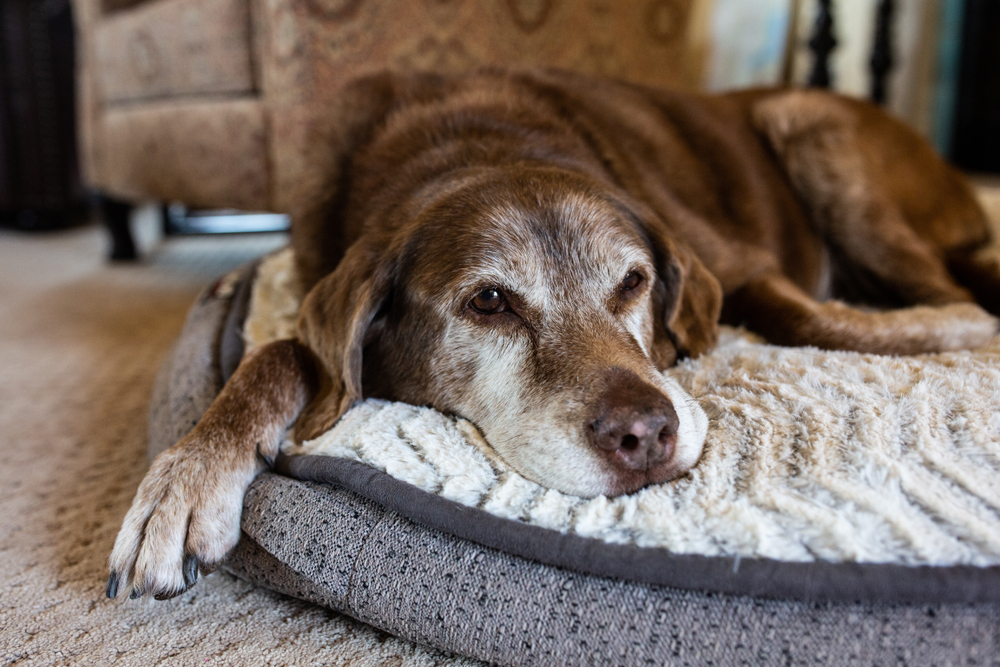As our pets age, it’s natural to see changes in their physical abilities, health, and behavior. Pets in their golden years need a little more attention than younger animals. Focusing on senior pet health can ensure our pets live as long and comfortably as possible. The team at Union Lake Veterinary Hospital has tips on senior pet care and keeping our older pets healthy and happy in their golden years stage of life.
Common Senior Pet Health Issues
Often, a change in your senior pet’s behavior can stem from changes in their health and can clue you into the fact that there might be an underlying health issue. Senior pets are more susceptible to specific age-related health issues affecting their daily lives. These include:
- Arthritis
- Loss of vision or hearing
- Diabetes
- Heart disease
- Obesity and obesity-related issues
- Kidney disease
Because older pets are more susceptible to certain diseases, we recommend increasing your wellness visits from once to twice yearly. Regular senior care visits give your veterinarian a chance to create a health baseline and notice any changes quickly. Whenever a doctor can spot any changes in health early, they are most likely to find a successful solution. While many senior pet health issues are not treatable, there are ways to limit or postpone their effects on the animal’s overall health and wellness. Your senior pet can still live a happy and fulfilling life even while dealing with certain age-related issues.
Senior Pet Care and the Brain
Just as physical changes can affect your senior pet’s behavior, so can changes in the brain and nervous system. Cognitive function decreases as the body ages. Senior pets might experience the following:
- Decreased ability to control bladder and bowel function
- Disorientation
- Increased vocalization
- Memory problems
- Behavioral changes
- Confusion
- Changes in sleeping or eating patterns
- Separation anxiety
- Listless staring
- Dementia
If you notice your pet’s cognitive decline, you should schedule a visit with your veterinarian. Medications, supplements, nutritional changes, and stimulating tasks can help slow the effects of age-related brain issues.
How You Can Help Your Senior Pet
Unfortunately, some pet owners see these changes in their pets and decide that senior pet care is too difficult. But, with a little extra love and attention plus help from your veterinary team, our senior pets can be allowed to enjoy the golden years they’ve earned.
At Union Lake Veterinary Hospital, we are fortunate to have the resources to help your senior pet age gracefully. Our staff can work together to address your senior pet’s health concerns while ensuring your pet is as healthy and happy as possible.
We want to partner with you to keep your pet in optimal health throughout every stage of life. From puppies and kittens to senior pet care, we have the veterinary services you need for your pets at any age. To learn more about our services or to schedule an appointment, please call (248) 363-1508.

